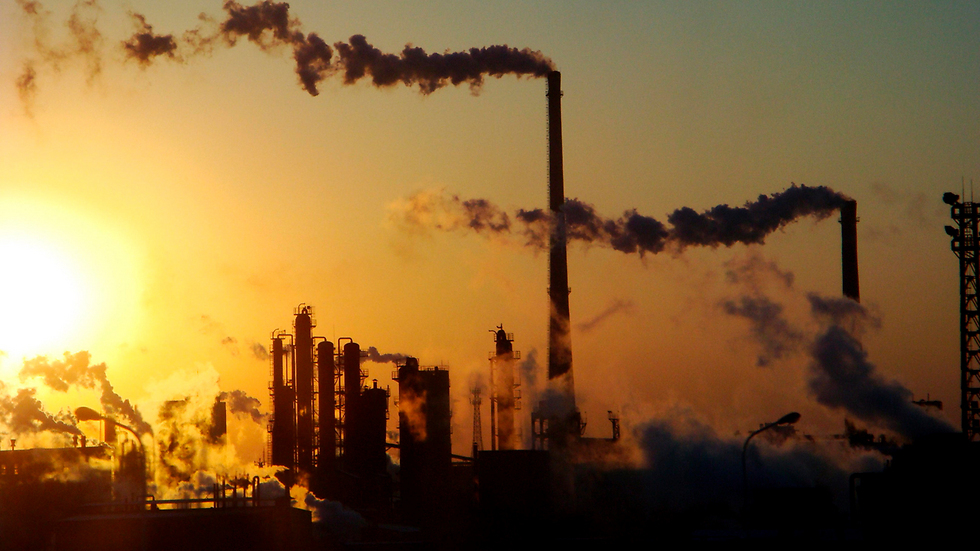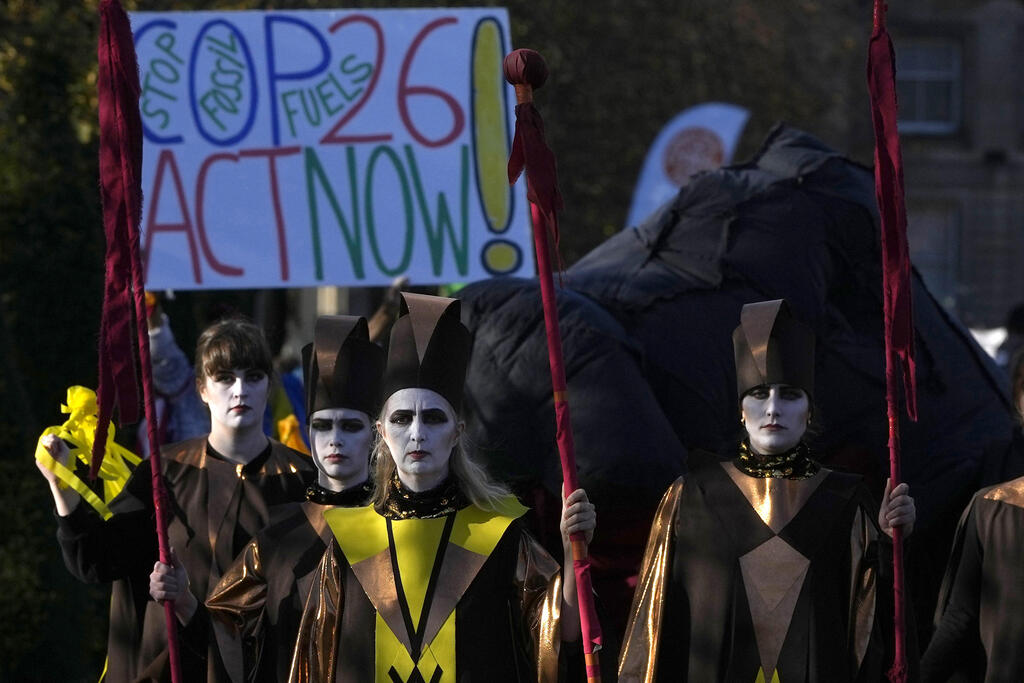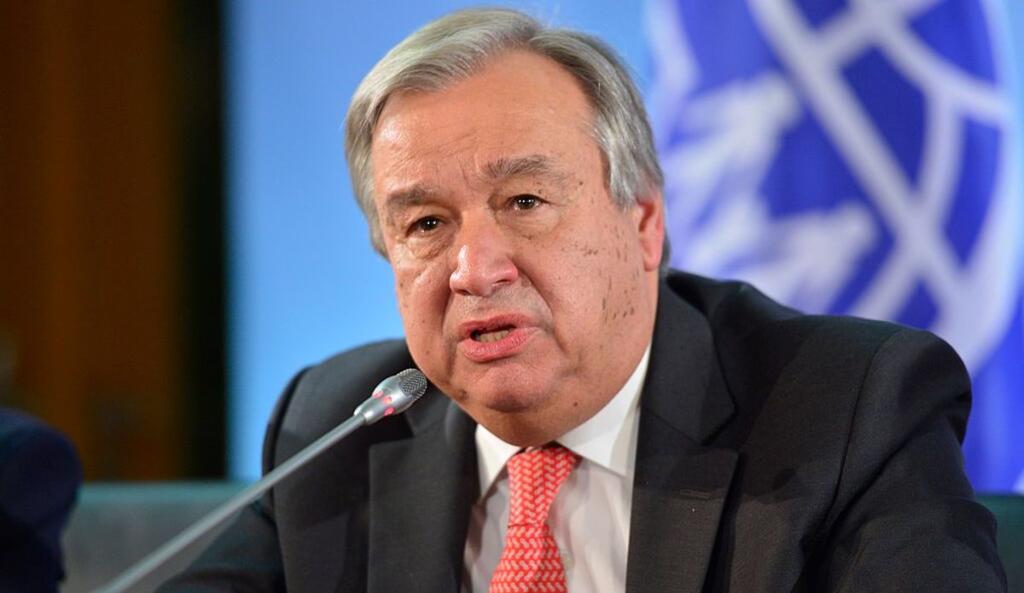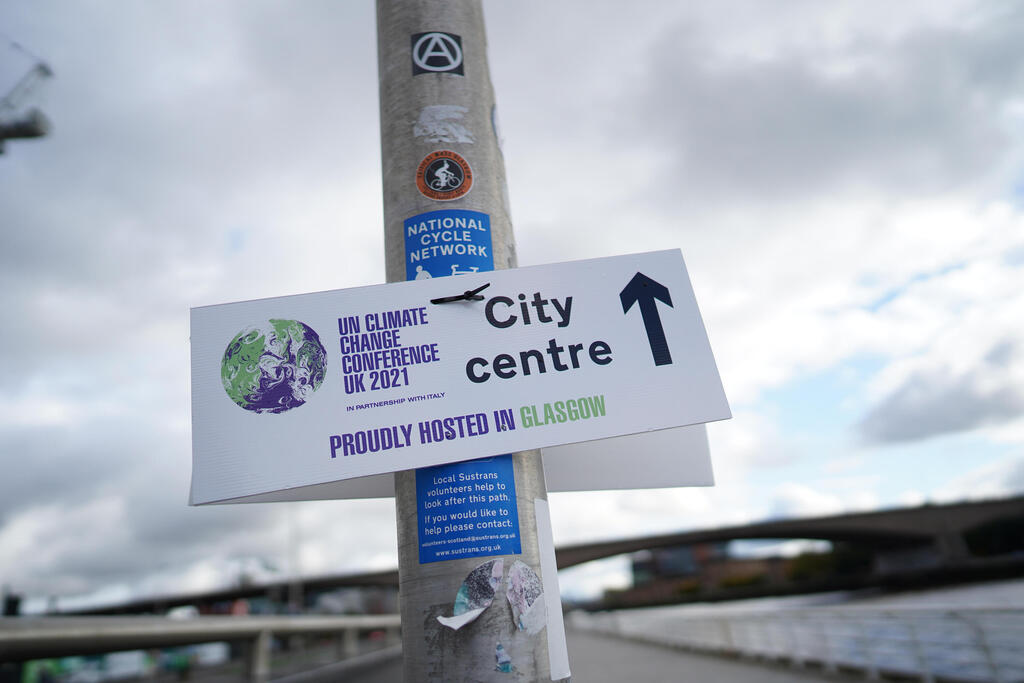Prime Minister Naftali Bennett were to arrive at the Scottish city of Glasgow on Sunday as world leaders convene for the United Nations COP26 summit, billed as a make-or-break chance to save the planet from the most calamitous effects of climate change.
COP26 was delayed by a year because of the COVID-19 pandemic and is set to include two days of speeches, with leaders pledging to set new emissions-cutting goals.
5 View gallery


Countries' existing pledges to cut emissions would see the planet's average temp rise 2.7C this century
(Photo: EPA)
Bennett will be joined by Environmental Protection Minister Tamar Zandberg, Energy Minister Karin Elharar and a delegation of additional officials and business people.
The prime minister said ahead of his trip that Israel was committed to achieve zero emissions by 2050.
“For the world to get to zero emissions by 2050, changing our behavior will do less than half the job. The other half will come from technology that has yet to be developed. That’s were Israel has to lead,” Bennett told British Sunday Times in an interview published Sunday.
COP26 aims to keep alive a target of capping global warming at 1.5C above pre-industrial levels - the limit scientists say would avoid its most destructive consequences.
Meeting that goal, agreed in Paris to much fanfare in 2015, will require a surge in political momentum and diplomatic heavy-lifting to make up for the insufficient action and empty pledges that have characterized much of global climate politics.
The conference needs to secure more ambitious pledges to further cut emissions, lock in billions in climate finance, and finish the rules to implement the Paris Agreement with the unanimous consent of the nearly 200 countries that signed it.
"Let's be clear - there is a serious risk that Glasgow will not deliver," UN Secretary General Antonio Guterres told leaders of the Group of 20 (G20) rich nations last week.
"Even if recent pledges were clear and credible - and there are serious questions about some of them - we are still careening towards climate catastrophe," Guterres added.
Countries' existing pledges to cut emissions would see the planet's average temperature rise 2.7C this century, which the UN says would supercharge the destruction that climate change is already causing by intensifying storms, exposing more people to deadly heat and floods, killing coral reefs and destroying natural habitats.
The signals ahead of COP26 have been mixed. A new pledge last week from China, the world's biggest polluter, was labelled a missed opportunity that will cast a shadow over the two-week summit. Announcements from Russia and Saudi Arabia were also lackluster.
The return of the United States, the world's biggest economy, to U.N. climate talks will be a boon to the conference, after a four-year absence under Former President Donald Trump.
But like many world leaders, President Joe Biden will arrive at COP26 without firm legislation in place to deliver his own climate pledge as Congress wrangles over how to finance it and new uncertainty about whether U.S. agencies can even regulate greenhouse gas emissions.
Leaders of the G20 meeting in Rome this weekend will say they aim to cap global warming at 1.5C, but will largely avoid firm commitments, according to a draft statement seen by Reuters.
The joint statement reflects tough negotiations, but details few concrete actions to limit carbon emissions.
The G20, which includes Israel, Brazil, China, India, Germany and the United States, accounts for about 80% of global greenhouse gas emissions, but hopes the Rome meeting might pave the way to success in Scotland have dimmed considerably.
Adding to the challenging geopolitical backdrop, a global energy crunch has prompted China to turn to highly polluting coal to avert power shortages, and left Europe seeking more gas, another fossil fuel.
Ultimately, negotiations will boil down to questions of fairness and trust between rich countries whose greenhouse gas emissions caused climate change, and poor countries being asked to de-carbonize their economies with insufficient financial support.
Assessing progress will be complex. Unlike past climate summits, the event won't deliver a new treaty or a big "win" but seeks to secure smaller but vital victories on emission-cutting pledges, climate finance and investment.
5 View gallery


Extinction Rebellion demonstrators take part in climate change protest in Glasgow ahead of the start of COP26
(Photo: AP)
Ultimately success will be judged on whether those deals add up to enough progress to keep the 1.5C goal alive - still a long way off.
Since the Paris accord in 2015, scientists have issued increasingly urgent warnings that the 1.5C goal is slipping out of reach. To meet it, global emissions must plummet 45% by 2030 from 2010 levels, and reach net zero by 2050 - requiring huge changes to countries' systems of transport, energy production, manufacturing and farming.
Countries' current pledges would see global emissions soar by 16% by 2030.
"The way I think about this is, there is a meteor coming at our planet and it has the very real potential of wiping out humanity," said Christiana Figueres, the former U.N. climate diplomat who led the talks that yielded the Paris Agreement.
First published: 09:51, 10.31.21




